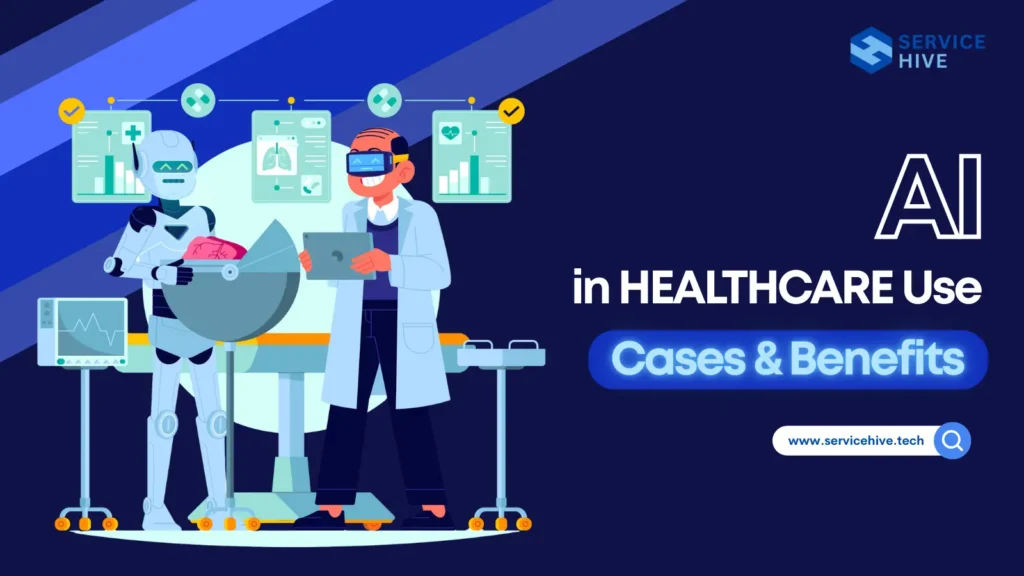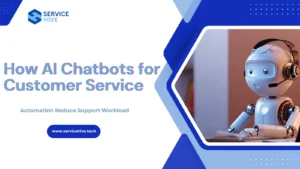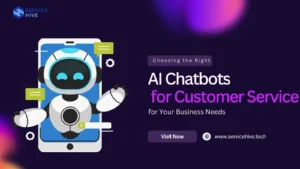AI in Healthcare: Key Use Cases Benefits and Future Trends

Artificial Intelligence (AI) is transforming the way healthcare operates. From faster diagnoses to personalized treatment plans, AI has become a powerful partner for medical professionals and patients alike. While human expertise is irreplaceable, AI adds accuracy, speed, and innovation that can save lives.
Here’s a quick overview of the top AI in healthcare use cases:
- Disease diagnosis and early detection
- Personalized treatment plans
- Virtual assistants and patient support
- Radiology and medical imaging
- Drug discovery and development
- Predicting chronic diseases
AI in Healthcare Use Cases
Disease Diagnosis and Early Detection
AI-powered diagnostic tools analyze medical images, lab reports, and patient records to identify disease patterns.
For example, AI has shown great accuracy in detecting cancers such as breast, lung, and colorectal cancer.
By learning from thousands of images, AI systems can highlight abnormalities that may go unnoticed in traditional check-ups. This helps doctors diagnose diseases earlier and treat patients more effectively.
Personalized Treatment Plans
Every patient responds differently to treatment. Artificial intelligence in healthcare helps design personalized care by analyzing genetic data, lifestyle habits, and medical history.
Machine learning models can even predict how well a patient will respond to specific medications. This allows doctors to choose the most effective therapy without months of trial and error.
Virtual Assistants and Patient Support
AI-driven virtual assistants are improving both clinical workflows and patient experience.
- For doctors: AI can manage medical records, pre-evaluate patients, and convert voice notes into text reports.
- For patients: AI apps provide medication reminders, answer common health questions, and monitor chronic conditions.
Radiology and Medical Imaging
Radiology has been transformed with AI applications in healthcare. Computer-assisted recognition detects organ abnormalities, tumors, and other medical issues more precisely.
AI also supports 3D post-processing of scans, helping radiologists create detailed and reliable reports in less time.
Drug Discovery and Development
Traditional drug discovery takes years and significant resources. AI reduces this timeline by predicting how drugs will interact with diseases. This accelerates the discovery process, cuts costs, and speeds up clinical trials.
Predicting Chronic Diseases
AI algorithms analyze patient lifestyle, lab results, and clinical history.
With this data, they can forecast risks of chronic diseases such as diabetes, kidney failure, or hypertension.
This empowers doctors to recommend preventive care before the condition becomes severe.
Benefits of AI for Patients and Doctors
- Improved Accuracy – Reduces chances of human error in diagnosis and treatment.
- Time Efficiency – Faster imaging analysis, drug discovery, and patient evaluations.
- Cost Savings – Avoids unnecessary procedures and lowers overall treatment costs.
- Better Outcomes – Early detection and personalized treatment improve survival rates.
- Greater Accessibility – Extends quality healthcare support to remote and underserved areas.
Together, these advantages highlight the AI in healthcare benefits that make treatment more efficient and reliable.
Challenges to Consider
Despite its benefits, artificial intelligence in healthcare comes with challenges. Data privacy, bias in datasets, and over-reliance on AI tools can be problematic. To be effective, AI must always complement—not replace—doctors’ judgment.
Future Trends in AI Healthcare
- Preventive AI – Predicting diseases before symptoms appear.
- Wearable Tech – Real-time monitoring via smart devices.
- Robotic Surgeries – AI-powered precision in complex procedures.
- Global Healthcare Access – AI bridging gaps in underserved regions.
These future trends highlight how AI will continue to expand its role, making healthcare smarter, faster, and more inclusive.
Final Thoughts
AI is not about replacing healthcare professionals but empowering them with smarter tools. From early diagnosis to drug development, the benefits of AI for patients and doctors are undeniable.
Looking to integrate AI into your healthcare processes? Connect with Service Hive for tailored AI solutions that drive real results.
Learn more about how AI is transforming industries here.
FAQs
Q1. Can AI replace doctors?
No. AI is a support tool that helps doctors, but human expertise and empathy remain essential.
Q2. How accurate is AI in diagnosis?
AI can match or sometimes outperform doctors in detecting diseases, but it should always be used alongside clinical evaluation.
Q3. How does AI benefit patients directly?
Patients enjoy faster diagnoses, personalized care, cost savings, and better prevention strategies.
Q4. What is the future of AI in healthcare?
The future includes preventive healthcare, robotic-assisted surgeries, real-time monitoring through wearables, and smarter medical data analysis.

Improving Ecommerce Support with AI Chatbots Across Chat Email and Messaging
Improving Ecommerce Support with AI Chatbots Across Chat Email and Messaging Introduction If you run an ecommerce business today you

How Ecommerce Brands Use AI Chatbots for Customer Service Today
How Ecommerce Brands Use AI Chatbots for Customer Service Today If you run or manage an ecommerce brand today you

Implementing AI Chatbots for Customer Service Automation Without Disrupting Operations
Implementing AI Chatbots for Customer Service Automation Without Disrupting Operations If you are a business owner or founder, chances are

How AI Chatbots for Customer Service Automation Reduce Support Workload
How AI Chatbots for Customer Service Automation Reduce Support Workload Introduction If you are a founder or operations lead, customer

Understanding Customer Service Automation and the Role of AI Chatbots
Understanding Customer Service Automation and the Role of AI Chatbots introduction If you are a business owner or founder, you

Choosing the Right AI Chatbots for Customer Service for Your Business Needs
Choosing the Right AI Chatbots for Customer Service for Your Business Needs Introduction If you run a growing business today